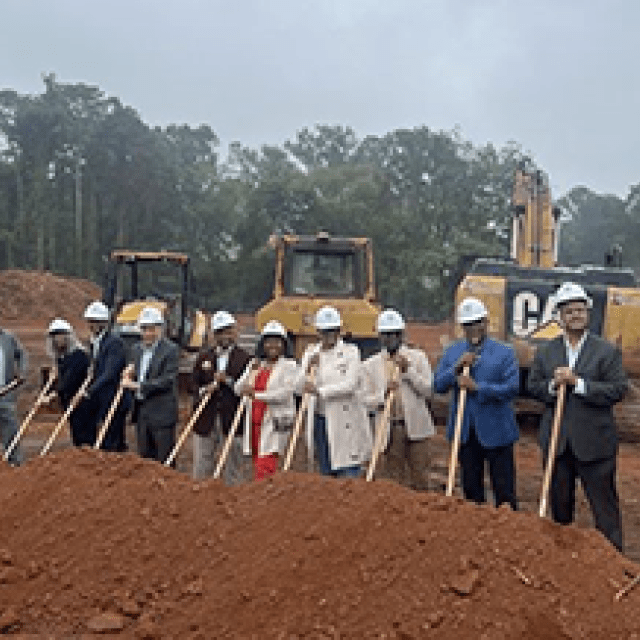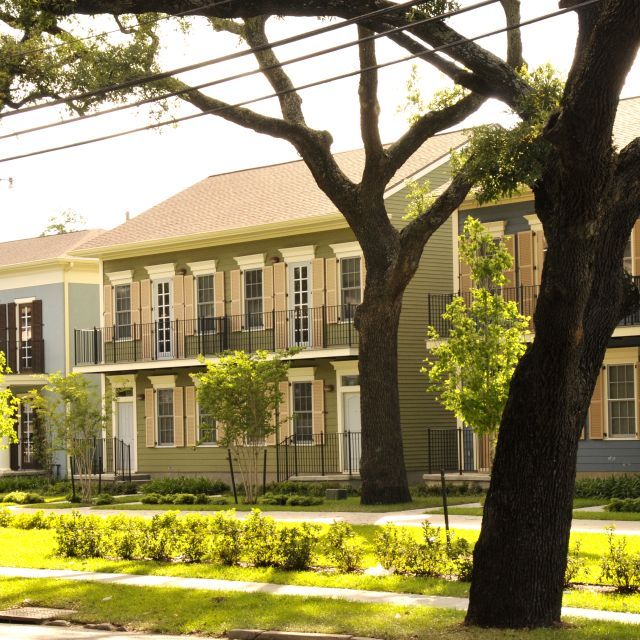When Pastor Rodney Hudson of Baltimore’s Ames Memorial United Methodist Church inquired about buying a property across the street from his church for $1,000, the owner told him he could have it for free. Along with the building next door. And the lot next to that.
“Little did I know, the warehouse was there, and then two other warehouses. Altogether it’s 50,000 square feet in addition to the church,” Hudson said.
Now, with Enterprise’s support, Hudson and his congregation are engaging in a feasibility study to see how to best navigate the process to develop those vacant warehouses and lots into a mixed-use development that will include affordable rental homes.
It’s all part of Enterprise’s Faith-Based Development InitiativeSM, or FBDI, a 16-year-old program that helps houses of worship turn underutilized property into affordable homes and community-impact facilities. Now, with financial support from the Wells Fargo Foundation, the program is going national – and Baltimore is one of five expansion cities.
At a July 14 event, Hudson spoke alongside fellow clergy members, government leaders, community leaders, and representatives of Enterprise and Wells Fargo at a “clarion call” event in Baltimore designed to encourage other congregations to apply for the program. Enterprise will select 12 houses of worship in Baltimore to provide training, technical assistance, and pre-development grants – all with a vision of creating 600 affordable homes across the city.
During his remarks, Hudson held aloft a faded brown leather portfolio given to him by a former congregation member who has since passed away. Inside, he explained, were papers from half a century ago documenting his congregation’s long-held vision of converting the neighborhood around it into a vibrant, affordable community. Enterprise is working with Hudson to help the church make that dream into a reality.
“It can happen for you as well,” said Rev. Joseph K. Williams, senior program director and manager of the FBDI program in Enterprise’s Mid-Atlantic market.
Indeed, even the very site of the July “clarion call” is testament to that fact. In 2011, Wayland Baptist Church opened the doors of Wayland Village Senior Apartments. At the clarion call, a number of Wayland Village residents took in the warm sunny day as they sat outside. Enterprise provided financing for the development, and Enterprise’s Community Development division was part of Wayland’s development team.
“We started our faith-based work in 2006, and our goal was to get more units of housing built,” Rev. David Bowers told the crowd gathered outside the entrance of Wayland Village. An ordained minister and Enterprise’s Mid-Atlantic vice president, Bowers has led FBDI since the beginning. “We wanted to work with houses of worship and help them make an informed, go or no-go decision to develop their land into housing. If they go forward, we then connect them to the intellectual and financial capital to help them navigate the process.”
Among those navigating the complex path of real estate development: Pastor Darryl Gould of the Gillis Memorial Christian Community Church. His congregation is just getting started with a 78-home community to house grandparents raising their grandchildren, alongside retail and a medical facility on the first floor. The church is co-developer of the project, set to open in 2024.
“A lot of times developers think churches aren’t about economics,” Gould said. “Yes, we are about economics. Once a project is over, developers and contractors leave, but we are still here in the community.”
Monica Mitchell of Wells Fargo knows something about this community in particular. She has family just down the road from Wayland Village.
“I have been able to infuse my passion for Baltimore, my deep love for the city," said Mitchell. “To be able to bring that passion and have it play out in the work that you do every day is deeply fulfilling at a soul level.”
Wells Fargo has been a key partner in the national expansion of our faith-based work, providing $8.5 million to help us expand to Baltimore, as well as Seattle, south Florida, Atlanta, and New York City.
“As anchors of the community, houses of worship are at the center of so many lives,” said Eileen Fitzgerald, head of housing affordability philanthropy at Wells Fargo. “We’re proud at Wells to be able to partner with Enterprise and their approach.”
Baltimore suffers from a unique blend of affordability challenges: a shortage of affordable homes, but also a glut of vacant properties and the ongoing impacts of racist policies and practices like redlining and disinvestment. At the “clarion call” event, Baltimore Housing Commissioner Alice Kennedy voiced optimism that the leadership of the faith community could help turn many of Baltimore’s struggling neighborhoods around.
“Our faith partners are critical to our work,” Baltimore Housing Commissioner Alice Kennedy said. “We don’t have time to waste to transform the lives of our residents.”



